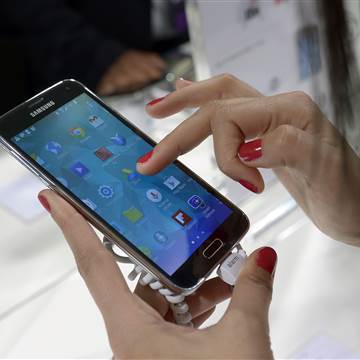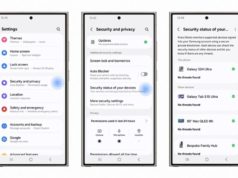The Senate took the first step Thursday toward blocking rules that would restrict how some big tech companies share and sell your personal data, a prospect that digital activists said would be a huge loss for online privacy.
On a party-line vote of 50-48, the Senate passed a joint resolution that would bar the Federal Communications Commission from enforcing rules it approved last year — when it was under Democratic control — that sought to ban internet service providers like cable and cellphone companies from selling your data without your consent.


The vote has little immediate impact: The measure would have to pass the House and be signed by President Donald Trump before it could become law. No timetable for House action has been set. In the meantime, the FCC rules that the measure would overturn aren’t scheduled to go into effect until December.
If it becomes law, the measure, in effect, would preserve a two-track regulatory system that treats ISPs — the companies that connect you to the internet, which are overseen by the FCC — differently from web companies like Google and Facebook, which are regulated by the Federal Trade Commission.
The rules passed last year by the Democratic majority on the FCC would require ISPs to ask you explicitly to “opt in” to letting them share personal information. On web-based ad networks, data sharing is usually turned on by default and you have to dig through menus and setting and opt out of it.
Related: How the Trump Administration Could Reshape the Internet
Here’s why that’s important: Just by themselves, Google and Facebook take in 54 percent to 60 percent of all U.S. digital ad revenue, depending on who’s doing the counting.
More tellingly, Google and Facebook snapped up 90 percent of all new online ad spending in the first half of 2016, the last period for which complete figures are available, according to data compiled by PricewaterhouseCoopers U.S. for the Internet Advertising Bureau.
That leaves everybody else to fight it out for the remaining 10 percent of new ad spending. And the big cable and phone companies said the Senate vote was a step toward keeping that tiny playing field somewhat level.
CTIA, formerly the Cellular Telecommunications and Internet Association, applauded the measure’s sponsors Thursday for “seeking a common-sense and harmonized approach to protecting Americans’ privacy.”
“Wireless carriers are committed to safeguarding consumer privacy, and we support regulatory clarity and uniformity across our digital economy,” it said in a statement.
Ajit Pai, the new chairman of the newly Republican-led FCC, also welcomed the Senate vote, telling reporters afterward: “My own core goal is to make sure that [the] uniform expectation of privacy is vindicated through the use of a regulatory framework that establishes a more level playing field.”
But advocates for online privacy slammed the vote.
Neema Singh Guliani, a legislative counsel specializing in surveillance and privacy issues for the American Civil Liberties Union, said the Senate was content to “sacrifice the privacy rights of Americans in the interest of protecting the profits of major internet companies, including Comcast, AT&T and Verizon.”
(NBC News is a division of NBCUniversal, which is owned by Comcast Corp., the nation’s largest cable provider.)
MACH: Protecting Your Internet Presence in the Age of Donald Trump
Others noted that the measure would also bar the FCC from advancing “substantially similar” rules in the future, which Kate Tummarello, a policy analyst for the nonprofit Electronic Frontier Foundation, said “would be a crushing loss for online privacy.”
“ISPs act as gatekeepers to the Internet, giving them incredible access to records of what you do online,” Tummarello said. “They shouldn’t be able to profit off of the information about what you search for, read about, purchase and more without your consent.”
They were joined by Mignon Clyburn, the only Democratic member of the FCC, who said the Senate measure would “frustrate the FCC’s future efforts to protect the privacy of voice and broadband customers.”
The vote, she said, opens up “a massive gap in consumer protection law.”







